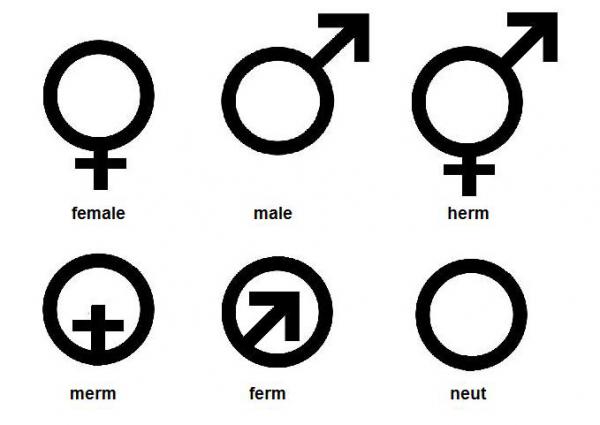BY LETTER
Pronouns, Early Anglic
 Image from Steve Bowers |
A number of new pronouns became current in the Late Information Age in variants of the English as new lifestyles and identity types became common. He, she, it, and the plural forms were used by a large fraction of the English-speaking population, including thoise who used it as a second language. However, some non-gendered pronouns (such as they, them, their and themself, and the Spivak pronouns e, em, eir, eirs, and eirself) began to be used as non-gender-specific forms of address.
Later, as English developed into Anglic and new forms of subsentient, sentient and sophont being started to emerge, new forms of pronouns were coined, and used to distinguish between these new types of entity. A personal pronoun (per, pers, and perself) was sometimes used to distinguish fully sophont beings (without regard to gender or type) from subsophont or non-sophont entities. Sophont hermaphrodites of various types could use a unique set of pronouns (se, hir, hirs, hirself) and so could nonsexual sophonts (je, jer, jers, jerself). Virtual sophont beings were sometimes also distinguished (ve, ver, veir, vers, verself).
Much later, alien beings (xenosophonts) sometimes used a series of xeno-pronouns (xe, xer, xeir, xers, xerself), especially if the other more specific pronoun sets could not be accurately applied for biological reasons. By this time the set of languages known as Anglic had branched into a large and complex family, which incorporated influences from many other sources, and the xeno-pronouns described in this table were only one form of addres used in this linguistic context.
| Singular they | non- specific pronoun | non- gender- specific personal pronoun | male and ferm | female and merm | herm (hermaph- rodite) | neut (nonsexual person) | object (non- person) | |
| subjective | they | e / ey | per | he | she | se | je | it |
| objective | them | em | per | him | her | hir | jer | it |
| possessive adjective | their | eir | pers | his | hers | hirs | jers | its |
| possessive pronoun | theirs | eirs | pers | his | hers | hirs | jers | its |
| reflexive | themself | emself or eirself | perself | himself | herself | hirself | jerself | itself |
| non- gender- specific virtual entity | non- gender- specific alien entity | plural (generic) | |
| subjective | ve | xe | they |
| objective | ver | xer | them |
| possessive adjective | veir | xeir | their |
| possessive pronoun | vers | xers | theirs |
| reflexive | verself | xerself | themselves or theirselves |
Image from Bernd Helfert and Steve Bowers |
Related Articles
- Pangender, Pangenderic - Text by M. Alan Kazlev
A biont that incorporates at the same time the whole range of genders and sexual modes - male, female, herm, ferm, etc. - Sex and Sexuality
Appears in Topics
Development Notes
Text by M. Alan Kazlev, Daniel Eliot Boese, Mark Ryherd, Stephen Inniss and Steve Bowers
Initially published on 06 March 2001.
Some of the pronouns in this article are copies or adaptations of the Spivak pronouns.
Updated August 2020 by Worldtree
Updated Jan 2024 by Steve Bowers
Initially published on 06 March 2001.
Some of the pronouns in this article are copies or adaptations of the Spivak pronouns.
Updated August 2020 by Worldtree
Updated Jan 2024 by Steve Bowers






